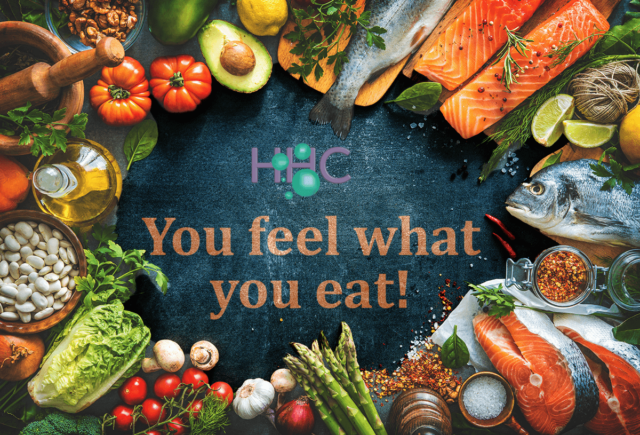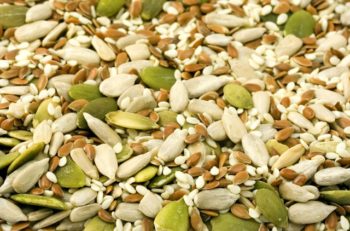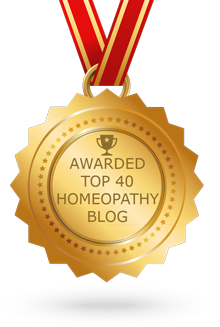You feel what you Eat!

Improve your psychological and social wellbeing, mood, happiness, coping skills, relationship satisfaction, and self-worth with sound nutrition and supporting supplements.
It is not unusual for any of us to suffer at times from feeling anxious, stress, a stress headache, anxiety disorders symptoms, sleep disorders, anxiety attacks, severe anxiety, chronic depression, and depression symptoms. It can be part of the ups and downs of normal life and more recently has been made more prevalent by the current COVID 19 times that are now part of daily life all over the world.
What is anxiety disorder?
It is stated on lifeline.org.au that anxiety disorder is one of the most commonly diagnosed mental health conditions in Australia. Anxiety is excessive, uncontrollable, and often irrational anticipation of future threats. Sometimes though, we can become overly worried about perceived threats – bad things that may, or may not happen. If your worries become persistent or out of proportion to the reality of the threat and also get in the way of you living your life, you may have an anxiety disorder. It’s important to seek help to manage severe anxiety.
We may all experience some form of anxiety at some point in our life.
Below are some of the most common signs and symptoms associated with anxiety.
- Restlessness
- Feeling ‘on edge’ or unable to stop worrying
- Rapid heartbeat
- Shortness of breath
- Difficulty concentrating, feeling ‘brain fog’ or confused
- Feeling lightheaded or faint
- Irritability
- Muscle tension
- Upset stomach
- Sleep disturbance
- Mental exhaustion
Nourishing the Brain
Nutritional Psychiatry or Mental Health Nutrition is an emerging field of nutrition, dietetic and psychological sciences that explore the important changes that one can make to one’s mental health and social wellbeing with nutritional interventions. It is thought that inflammation in the brain is a major cause of mental health issues and can be a result of long-term poor eating and nutritional deficiencies. Healthy eating and supplementation of key nutrients can protect against this inflammation in the brain and can also improve aspects of cognitive function such as learning, reasoning with others, memory and attention span.
The Gut-Brain connection
 Our brain has a direct effect on the stomach and intestines. The very thought of eating will release the stomach’s juices before food even gets there. This gut-brain connection goes both ways. A stressed or imbalanced intestine can send signals to the brain, just as a troubled brain can send signals to the gut. Therefore, a person’s stomach or intestinal imbalance or distress can be the cause or the product of anxiety, stress, or depression. That’s because the brain and the gastrointestinal (GI) system are intimately connected.
Our brain has a direct effect on the stomach and intestines. The very thought of eating will release the stomach’s juices before food even gets there. This gut-brain connection goes both ways. A stressed or imbalanced intestine can send signals to the brain, just as a troubled brain can send signals to the gut. Therefore, a person’s stomach or intestinal imbalance or distress can be the cause or the product of anxiety, stress, or depression. That’s because the brain and the gastrointestinal (GI) system are intimately connected.
In recent years, evidence has emerged to show how the extraordinarily vast array of microbes living inside your intestine – the gut microbiome – feeds into mental illness development and progression.
“Depression, anxiety – these and other disorders are directly linked to what happens in the gut,” says UNSW Professor of Medicine and consultant gastroenterologist Emad El-Omar.
The gut micro biome helps us to digest food and regulate our immune system. As it does this it generates metabolic compounds. When microbial populations shift or change, so too do the metabolic compounds pumped into our gut. If metabolites make their way out of the gut and into the intestinal wall, they can directly interact with our enteric nervous system or ‘second brain’. These 100-million-odd nerves embedded in our ‘second brain or gut tissue transmit messages to the brain in our head.
Metabolites may also communicate with the immune cells surrounding our digestive system and trigger an immune response, which in turn can trigger and sustain chronic brain inflammation. Chronic brain inflammation is linked to depression and anxiety. Therefore, some people with depression or anxiety may benefit as much from anti-inflammatory medications, foods and supplements as they do antidepressants.
Are your prescribed medications depleting you of important mental health nutrients?
 In the book, Antidepressants, Antipsychotics and Stimulants by Dr. David W. Tanton, Ph.D it is written that many of the medications people are prescribed for mental health issues can be causing multiple nutrient deficiencies and increasing risk of worsening symptoms and other health issues.
In the book, Antidepressants, Antipsychotics and Stimulants by Dr. David W. Tanton, Ph.D it is written that many of the medications people are prescribed for mental health issues can be causing multiple nutrient deficiencies and increasing risk of worsening symptoms and other health issues.
Here are a few examples amongst the many more mentioned in the book
Prozac depletes: Vitamins B1, B2, B3, B6, B12, folic acid, D, C, Coenzyme Q10, calcium magnesium and zinc
Zoloft deplete: Vitamin B1, B2, B3, B6, B12, Folic acid, C, D, Calcium, zinc , magnesium and manganese
Zyprexa depletes, Vitamin A, B1, B12, Biotin, folic acid, carnitine, C, D, K, and calcium
Seroquel depletes: Vitamin A, B1, B12, Biotin, Folic acid, carnitine, Inositol, C, D, K, and calcium.
Many more medications were listed as having similar depleting effects on most of the above-mentioned nutrients and some also depleted essential fatty acids.
Can microbiome manipulation mend minds?
In the past decade, the microbiome has surfaced as a target for psychiatric treatment. Manipulating the microbiome can create positive changes in many mental health conditions A healthy diet, exercise, supplementation of pre and probiotics and faecal microbiota transplants are all ways to optimise the gut microbiome. Targeted supplements nurture conditions for, and repopulate the gut with, specific beneficial bacteria. Optimising the Microbiome may also help offset serious medication side effects. For instance, long-term use of some common antipsychotic drugs can increase a person’s risk of cardiovascular disease. Antipsychotics kill off some of the beneficial microbiota that protect people from things like cardiovascular disease and obesity.
MRC researchers and collaborators at the Prince of Wales Hospital and Neuroscience Research Australia (NeuRA) last year started recruiting patients for a longitudinal study to investigate microbiome changes in patients with schizophrenia. The study is anticipated to end in 2022.

General protective factors for mental health
Feeding the brain with a diet that provides adequate amounts of complex carbohydrates, essential fats, amino acids, vitamins, minerals, and water can support healthy neurotransmitter activity. It can protect the brain from the effects of oxidants, which have been shown negatively to impact mood and mental health.
 A study conducted by Stranges et al. (2014), in England, found that vegetable consumption was associated with high levels of mental wellbeing and that of those examined, the behavioural risk factor most consistently associated with both low and high mental wellbeing across both sexes was the individual’s fruit and vegetable consumption. Vitamins, minerals, and essential fatty acids perform a number of essential functions and play a crucial part in supporting good mental health.
A study conducted by Stranges et al. (2014), in England, found that vegetable consumption was associated with high levels of mental wellbeing and that of those examined, the behavioural risk factor most consistently associated with both low and high mental wellbeing across both sexes was the individual’s fruit and vegetable consumption. Vitamins, minerals, and essential fatty acids perform a number of essential functions and play a crucial part in supporting good mental health.
Deficiencies in micronutrients have been implicated in a number of mental health problems. Reports suggest that essential fatty acids have an association with better mental health even after adjustment for other factors (income, age, other eating patterns), and a reduced risk of cognitive impairment in middle age. They are termed ’essential’ as they cannot be made within the body, so must be derived directly from dietary sources. Unequal intakes of omega-3 and omega-6 fats in the diet, have been implicated in a number of mental health problems, including depression, and concentration and memory problems; and studies have shown that increased consumption of these fatty acids can be helpful in the control of bipolar depressive symptoms.
Nutrients that can combat symptoms of depression and anxiety boost mood
A healthy cognitive system is essential to regulating mood. Certain nutrients have a profound effect on maintaining normal healthy brain function. Researchers have studied the association between foods and the brain and identified 10 nutrients that can combat depression and boost mood: calcium, chromium, folate, iron, magnesium, omega 3 essential fatty acids, Vitamin B6, Vitamin B12, Vitamin D and Zinc.
A word about Serotonin… Serotonin is a major contributor to feelings of happiness
| Nutrient | Mental Health Function | Deficiency Signs | Foods | Rec. daily amount – RDA |
|---|---|---|---|---|
| Calcium | Elevates mood | PMS related depression | Dairy, collard greens, kale sesame seed | Adults – 1000mg per day |
| Chromium | Regulates mood. Increases brains level of Serotonin, melatonin & norepinephrine | Mood fluctuations and low mood | Broccoli | Women – 25mcg |
| Folate | Supports serotonin regulation, regulates social behaviour, boosts effectiveness of anti-depressants | Anxiety, Depression, Fatigue, Psychosis, mood fluctuations, low seratonin and sleep disturbances | Green leafy vegetables, Spinach, avocado, black-eyed peas, Asparagus, Brussel Sprouts | Adults 400mcg |
| Iron | Supports energy levels and strength | Fatigue, apathy, mood changes | Lentils, beef, turkey, fortified oatmeal, soy beans, eggs | Women – 18mg Men – 8mg |
| Magnesium | Supports development of Serotonin helps regulate emotions. Nervous system and muscle relaxer | Irritability, fatigue, insomnia, mental confusion, anxiety, stress | Dairy foods, Green vegetables, Nuts and seeds. Almonds, spinach, cashews, edamame, peanuts | Women – 310mg Men – 400mg |
| Omega 3 fatty acids | Hi levels reduce risk of depression and suicide | Fatigue, mood swings, memory loss, depression | Oily fish, Chia seeds, Spinach, Chinese broccoli | No RDA – oily fish twice per week and daily vegetarian sources |
| Vitamin B6 | Neuro transmitter, regulates healthy mood, treats PMS | Irritability, Poor memory, Stress, Confusion and depression | Whole grains, Bananas, Chickpeas, yellow fin tuna, Salmon, Chicken breast, fortified cereal | Adults 1.3mg per day |
| Vitamin B12 | Aids in creation of red cells and nerves, supports energy, regulates depression | Confusion, poor memory, Fatigue, slowed reasoning psychosis, paranoia, depression | Rainbow trout, salmon, swiss cheese, tuna, mozzarella | Adults 2.4 mcg per day |
| Vitamin D | Regulates mood and reduces depression | Depressive symptoms | Cod liver oil, Salmon, mushrooms, milk | Adults 15 to 60 600IU per day |
| Zinc | Balances mood, can improve response of and reduce side effects of antidepressant medications | Confusion, Blank mind, lack of motivation, Depressive behaviours, Loss of appetite, hair loss | Pumpkin seeds, Oysters, Nuts, cashews, Pork loin, Swiss cheese, fish | Men 11mg per day Women 8mg per day |
| Amino acids eg N-Acetyl Cysteine | Needed to create serotonin, converts into glutathione in the body. We have evidence that it’s helpful in bipolar depression, schizophrenia, trichotillomania and other compulsive and addictive behaviours. | Mood and psychological disturbances and disorders | Amino acids are found in any source of protein, most notably meats, seafood, eggs, nuts and legumes. | No RDA |
Here’s a sample daily eating meal and snack ideas to boost your mental health!
Breakfast
- Organic wholegrain toast with nut butters, smoked salmon, sardines, and avocado, Swiss cheese, tahini
- Whole grain healthy pancakes with fresh fruit, nut butters, LSA, yogurt
- Organic wholegrain porridge eg oats, quinoa, buckwheat, aramanth with grated ginger, chopped apple, a tablespoon of crushed LSA (Linseeds, sun flower seeds and Almond) and sliced banana, berries, yogurt on top.
- Breakfast bowl with fresh chopped fruit, chia seeds, seeds, cashews, LSA, nut butter, yogurt
- Choc Chia pudding (¼ cup chia seeds, ½ cup of coconut water, 1 teaspoon maple syrup, 2 teaspoons cacao) when chia has absorbed the liquid add raw seeds, dry or fresh fruit, raw cashews, coconut flakes, coconut yogurt, toasted muesli, LSA
- Scrambled eggs/tofu with leafy green vegetables, mushrooms
Snacks/Supper
 Nuts and seeds, fresh fruits, yoghurts with fruit, nuts, and seeds, chia puddings, wholegrain crackers or vege sticks with hummus, Swiss cheese, tahini, banana or green smoothies and juices, whole grain health muffins, banana bread, oysters
Nuts and seeds, fresh fruits, yoghurts with fruit, nuts, and seeds, chia puddings, wholegrain crackers or vege sticks with hummus, Swiss cheese, tahini, banana or green smoothies and juices, whole grain health muffins, banana bread, oysters
Lunch/Dinner
- Oily fish with leafy green vegetables/salad/ asparagus/brown rice
- Chickpea/lentil and vegetable curry with brown rice/quinoa/buckwheat
- Beef/turkey/pork loin/chicken with roast vegetables, leafy greens/salad/ broccoli, asparagus
- Mixed bean salads/casseroles with whole grain rice, quinoa
- Wholegrain breads/crackers with avocado, tuna, smoked salmon, chicken, spinach/salad leaves, hummus,
- Leafy green vegetables with cashews, roasted chickpeas and tahini and lemon sauce
- Vitamin D – “The Sunshine Vitamin” - 29/06/2022
- 20 Tips to Control Your Sugar Cravings - 06/10/2021
- Knock out that cold or flu and fast track your way back to health! - 15/06/2021




Leave a Reply